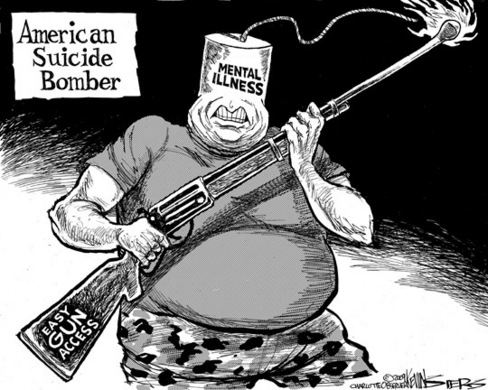This is from MindHacks. I plan to write more about psychoanalysis. I'm finding it hard to write on this because it seems that the word "therapy" is making too much confusion and putting on the same bag many kind of therapies - I don't even like the word therapist that is causing more and more confusion. I've seem many people saying they had a bad experience with "therapy" but when I ask which was the method usually people don't know the answer. I've found this article and I hope it helps clear things a little bit. Psychoanalysis has nothing to do with psychology and has nothing to do with a chatting with a person and you will never receive an advice."The New York Times
has an article on the changing fortunes of the New York Psychoanalytic Institute and why psychoanalysis is being increasingly marginalized in mental health. Psychoanalysis, the name for both the theory practice of psychological treatment developed by Freud, was once the driving force behind American psychiatry and the only game in town as far as psychological treatment was concerned.
It is now becoming increasingly marginalised, thought of as a bit eccentric, and overtaken by newer cognitive therapies. Some of the reasons for this are undoubtedly to do with the culture of psychoanalysis itself.
A major historical factor has been the long and contentious history of the movement, which has been subject to constant splits, disagreements and factional in-fighting.
Part of the reason for this, perhaps more than for other therapies, is that psychoanalysis involves a much closer relationship between theory and practice.
In this framework, mental illnesses arise from unresolved emotional conflicts that the mind tries to handle by various psychological defenses. These defenses may fail, or they may be counter-productive in the long-term, supposedly leading to the symptoms of mental disorder.
The goal of psychoanalysis is not necessarily to reduce the symptoms but to resolve the inner conflicts (Freud famously said he wanted to transform "neurotic misery into ordinary unhappiness").
So, what tells you when the patient is improved? Why psychoanalytic theory of course.
And if you come up with a new theory of a disorder, you are, by definition, suggesting a new form of treatment, and often, new criteria for therapeutic success.
You also might be suggesting that your colleagues' practice is wrong - hence the infighting and divisions.
In contrast, most other forms of treatment (including drugs and other psychological therapies) rely on descriptive measures of symptom improvement that form of the benchmark of psychiatric outcome studies, so theory and practice are much less intertwined.
Analysts will argue that these other treatments only deal with the surface symptoms and don't deal with the 'deeper concerns', but the same issue arises - what constitutes 'deep' in this context is psychoanalytic theory.
In contrast, the development of cognitive behaviour therapy (CBT) has seen an opposite pattern. If new innovations work, they are typically re-included under the same CBT banner - giving the impression of a single unified therapy, when in fact, the boundaries are quite loose and determined by what has been shown to be effective in studies.
One of the other quirks of psychoanalysis, is that it's selective for people who are quite wealthy.
Training as a psychoanalyst takes up to seven years, and requires you are in therapy yourself, usually for five times a week, at a cost of up to £100 ($200) a session. This comes on top of the cost of the training course itself.
For patients, therapy can also take years, and while most analysts will have discounts for the less well off, the costs can be significant. So despite some notable exceptions, it's mostly the wealthy treating the wealthy - a curious enclave of the upper middle classes.
These factors also mean it's very difficult to subject psychoanalysis to randomised controlled trials, because it's so unlike anything else. This has made a new generation of clinicians, brought up with the mantra of 'evidence based medicine', suspicious of it.
With great reluctance in some quarters, the principles of psychoanalysis have been shoehorned into a number of briefer versions: psychoanalytic psychotherapy, transference-focused psychotherapy and so on.
Interestingly, symptom outcome studies have found that these can be quite effective, particularly it seems for 'personality disorders' - a group of fairly ill defined diagnoses, but which typically involves destructive mood and relationship problems.
Despite the eccentricities and circular reasoning involved in some aspects of psychoanalysis, 100 years of practice has led to some important insights.
However, only recently has research started to pull out the wheat from the chaff in terms of how it can be applied to the demands of 21st century mental health care.
Link to NYT article 'Patching Up the Frayed Couch'.
Link to AJP editorial on treatment of borderline personality disorder.
—Vaughan.
Posted at September 10, 2007 11:30 AM
































